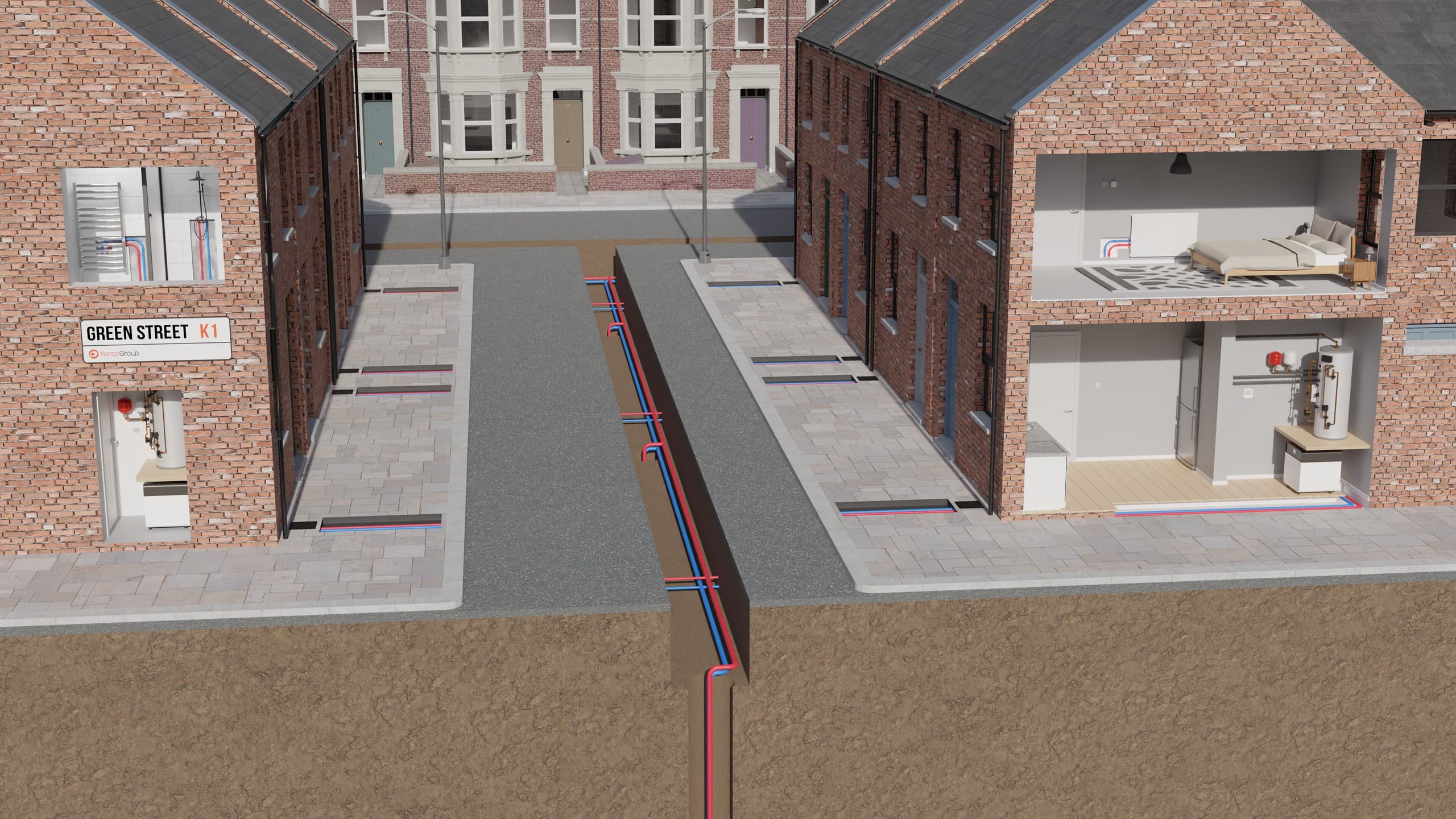‘Unprecedented Investment’ in Ground Source Heat Pumps to Cut HA’s Carbon Emissions by 66,000 tonnes
- Social Housing
- 3 min read
A diverse array of properties will take part in the heating upgrade scheme, from bedsits to maisonettes, low rise flats, houses and bungalows. It is estimated the investment will reduce lifetime carbon emissions by up to 40 tonnes in the bedsits to 200 tonnes in the three-bed flats; the project will result in massive emissions savings, comparable to a 5MW solar PV farm featuring 20,000 solar panels covering an area of 30 acres.
Tenant fuel bills will be reduced by typically 30-50%, annually saving around £150 per bedsit up to £500 per house.
Patrick Berry, Managing Director of Together Housing’s Energy Services, comments:
This investment is a major commitment to ensuring our homes are affordable and energy efficient. Using renewable heat we can provide our customers with clean, comfortable, low cost energy and lower our carbon impact. It forms a part of Together Housing’s strategy to maximise the potential of renewable heat and power and we are delighted that the projects are now underway.
The new ground source heat pump infrastructure will consist of a series of communal boreholes connected to individual heat pumps within each property, Kensa call this system ‘ Networked Heat PumpsA decarbonisation solution for over 60% of UK homesnetworked heat pumps'. The shared ground loop array infrastructure is deemed a district heating system, qualifying the project to be part-funded via the Energy Company Obligation and receive a twenty year income via the Non Domestic Renewable Heat Incentive.
Networked Heat PumpsA decarbonisation solution for over 60% of UK homesnetworked heat pumps'. The shared ground loop array infrastructure is deemed a district heating system, qualifying the project to be part-funded via the Energy Company Obligation and receive a twenty year income via the Non Domestic Renewable Heat Incentive.
Dr Matthew Trewhella, former Managing Director of Kensa, comments:
Together Housing’s landmark investment in ground source heat pumps via the Procure Plus framework is a pioneering step by a social housing provider to address the emissions of existing housing stock and fuel poverty levels; their commitment to innovation, community, and the environment is a benchmark for fellow housing associations and new build developers to follow.
Their commitment to renewable heat indicates a market transformation of the UK’s approach to heating infrastructure. Substantiated by Government’s Spring Statement announcement of a future homes standard mandating the end of fossil-fuel heating systems in all new houses from 2025, following the recent Committee for Climate Change report calling for the end of gas grid connections to new build housing in six years, this is the beginning of the end of inefficient heating infrastructure in the UK, on and off the gas grid.
Political and building regulation pressures have built the case for ground source heat pump infrastructure in UK housing, and now the climate threat has built the urgency.
Claire Perry, Minister for Energy and Clean Growth, commented on the record-breaking energy efficiency programme of works:
I’m delighted to see how many more businesses and organisations, such as Kensa and Together, are seizing this multi-billion pound opportunity to energize their communities to tackle the very serious threat of climate change.
A recent report by the Greater London Authority concluded that compared to various air source, direct electric, gas and CHP configurations in new build houses, shared ground loop arrays are the most efficient, lowest carbon, and lowest cost solution.


